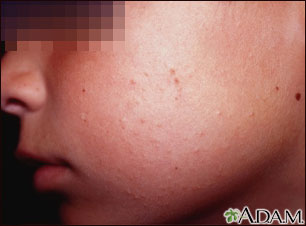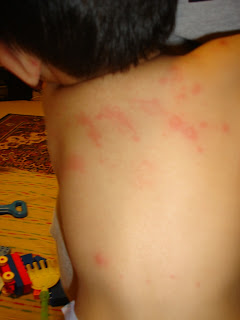New flu prevention and treatment recommendations for people with asthma
MILWAUKEE – With the Centers for Disease Control and Prevention (CDC) reporting that an initial analysis of 1,400 adults hospitalized for H1N1 found that 26% had asthma, how can the more than 34 million Americans with asthma protect themselves from the virus and complications?
An article set to appear in The Journal of Allergy and Clinical Immunology (JACI) recommends that people with asthma who have suspected or confirmed influenza should be strongly considered for antiviral medications because of their increased risk of developing a complication such as bacterial pneumonia.
Additionally, most patients with asthma should be vaccinated with the seasonal and 2009 H1N1 inactivated vaccines.
“People with asthma are at high risk of serious complications from influenza infection, including H1N1, but vaccination can significantly reduce this risk. If you have asthma, seasonal influenza and H1N1 vaccination is recommended. Be sure to get the injectable vaccines, not the vaccine nasal spray,” said James T. Li, MD, PhD, FAAAAI, one of the article authors.
The live attenuated influenza vaccine, which includes the nasal spray FluMist®, is not recommended for patients with asthma due to concerns about triggering an asthma exacerbation.
Vaccinations for both the seasonal flu and 2009 H1N1 are among the best prevention tools available to prevent complications from the flu, especially for individuals with chronic conditions such as asthma. But what if you are allergic to a substance in the vaccines?
Asthma patients with an egg allergy or history of an allergic reaction to the influenza vaccine should see an allergist/immunologist for proper testing and evaluation, according to the American Academy of Allergy, Asthma & Immunology (AAAAI).
The AAAAI offers a comprehensive library of resources on the novel H1N1 virus—especially as related to allergic diseases—including treatment recommendations, vaccine news and information for patients. Subscribe to the RSS feed to be notified of the latest updates as they happen.
The AAAAI (www.aaaai.org) represents allergists, asthma specialists, clinical immunologists, allied health professionals and others with a special interest in the research and treatment of allergic and immunologic diseases. Established in 1943, the AAAAI has nearly 6,500 members in the United States, Canada and 60 other countries. To locate an allergist/immunologist, visit the AAAAI Physician Referral Directory at www.aaaai.org/physref.



Comments
Post a Comment
Thanks for taking the time to comment on this blog's posts! Let's keep the discussion engaging and free of frivolous advertising or vulgarity. It's a family show, folks!